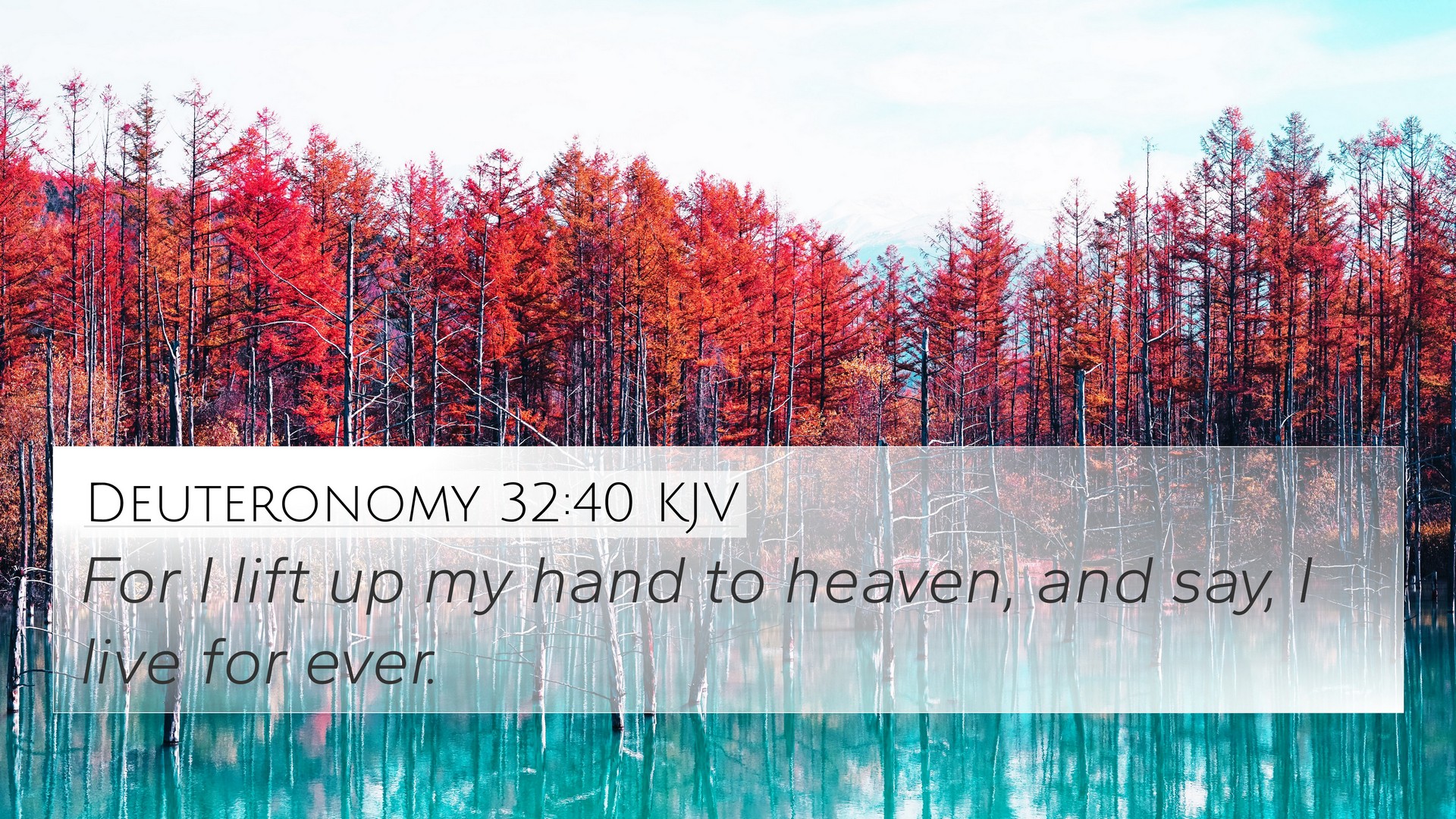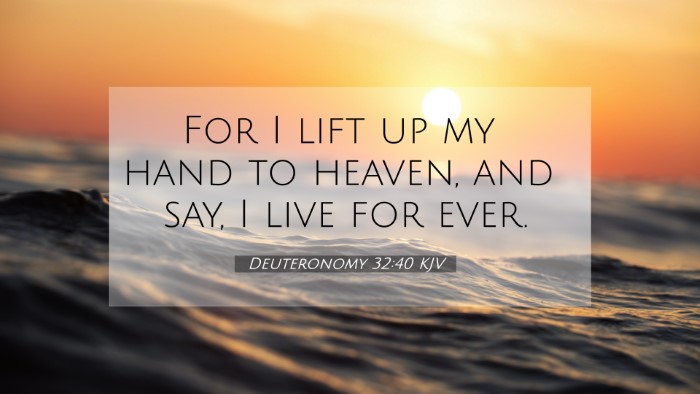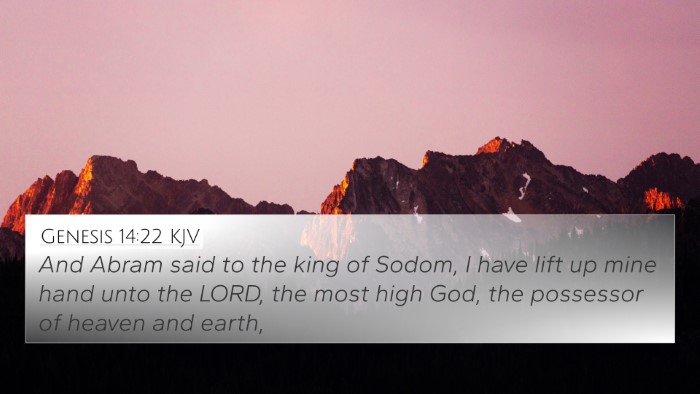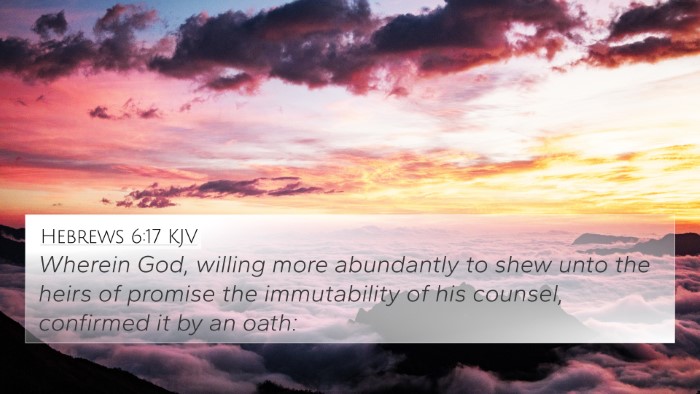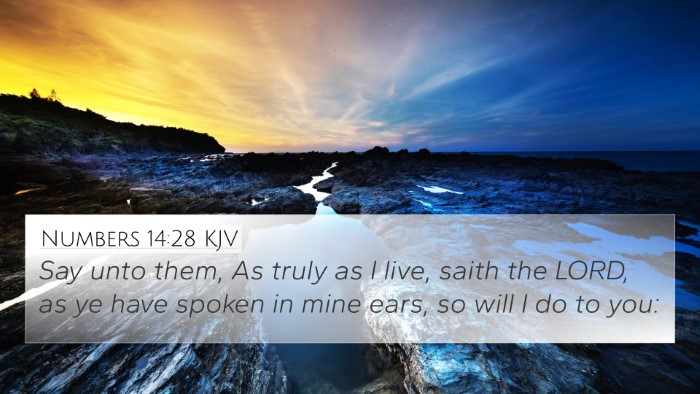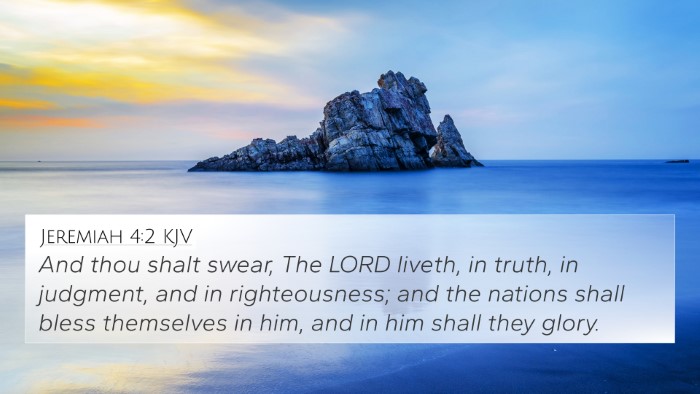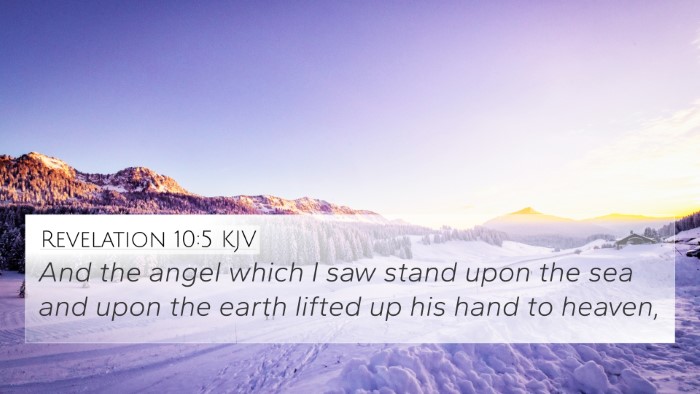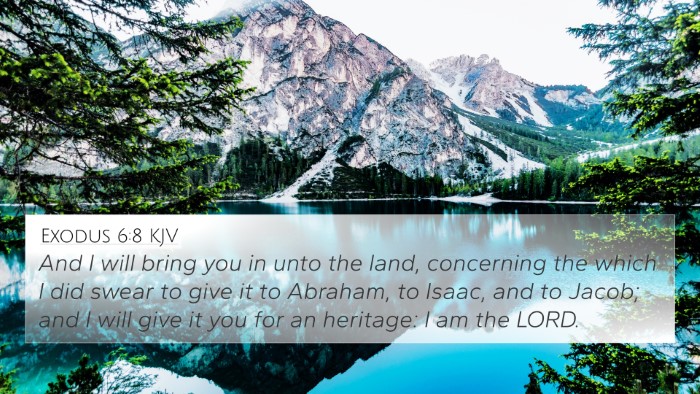Understanding Deuteronomy 32:40
Bible Verse: Deuteronomy 32:40 - "For I lift up my hand to heaven, and say, I live for ever." (KJV)
This verse is part of a larger poem in which Moses recounts the greatness of God and the consequences of Israel's unfaithfulness. It highlights the eternal nature of God and His unwavering commitment to His covenant with His people. The imagery of lifting a hand to heaven signifies solemnity and a strong declaration of truth.
Interpretation and Meaning
The interpretations provided by various public domain commentaries enrich our understanding of this verse.
-
Matthew Henry's Commentary
Henry emphasizes the seriousness of the declaration made in this verse. He sees it as a promise by God to affirm His eternal nature and divine authority. The act of lifting the hand symbolizes an oath that underscores the permanence of God's existence and His governance of all creation. This call to heaven serves to remind the Israelites of their covenant obligations and the severity of their actions.
-
Albert Barnes' Notes
Barnes remarks on the importance of the statement that God "lives forever". He connects this idea to the themes of judgment and redemptive grace present throughout Scripture. By declaring His eternal nature, God assures His people that His purposes will prevail and that He will ultimately enforce justice, reflecting both His holiness and mercy.
-
Adam Clarke's Commentary
Clarke extends the meaning of the verse by discussing its implications for Israel's history. He notes that lifting one's hand to heaven signifies an invocation of divine witness, reinforcing the notion of accountability before God. This underscores the importance of fidelity to God’s covenant, warning of the dire consequences of straying from His laws while simultaneously affirming God's everlasting presence and faithfulness.
Cross-References and Thematic Connections
This verse can be linked thematically and contextually with various other passages throughout the Bible:
- Revelation 1:8: "I am Alpha and Omega, the beginning and the ending, saith the Lord, which is, and which was, and which is to come, the Almighty." - This parallel highlights God’s eternal existence.
- Psalm 90:2: "Before the mountains were brought forth, or ever thou hadst formed the earth and the world, even from everlasting to everlasting, thou art God." - It reflects on God's eternal nature.
- Malachi 3:6: "For I am the Lord, I change not; therefore ye sons of Jacob are not consumed." - It emphasizes God's unchanging nature.
- Romans 1:20: "For the invisible things of him from the creation of the world are clearly seen, being understood by the things that are made, even his eternal power and Godhead;..." - This verse speaks to understanding God's eternal qualities through creation.
- Hebrews 13:8: "Jesus Christ the same yesterday, and today, and forever." - It draws a connection to the unchanging character of Christ, reiterating the idea of eternity.
- 1 Timothy 6:16: "Who only hath immortality, dwelling in the light which no man can approach unto; whom no man hath seen, nor can see: to whom be honor and power everlasting." - This reinforces the truth of God's eternal being.
- John 8:58: "Jesus said unto them, Verily, verily, I say unto you, Before Abraham was, I am." - A profound revelation of Jesus’ eternal pre-existence.
Application and Reflection
In reflecting on Deuteronomy 32:40, readers are called to consider God's covenant faithfulness and the serious implications of their commitments to Him. This verse serves as a reminder of the eternal stakes involved in our relationship with God.
Tools for Cross-Referencing
Understanding the connections between these verses can be further supported by various tools:
-
Bible Concordance: Helps locate scriptures by keywords and themes, facilitating cross-referencing.
-
Bible Cross-reference Guide: A resource that provides insights into interconnected passages enhancing comparative study.
-
Cross-reference Bible Study: Techniques that encourage deeper understanding of relationships between verses.
Conclusion
This analysis of Deuteronomy 32:40 showcases the richness of Biblical text through inter-Biblical dialogue and cross-referencing. The eternal nature of God serves as a cornerstone for understanding not only this verse but the entire narrative of Scripture. This understanding fosters a deeper connection with God's promises and expectations, calling us to a faithful response.
